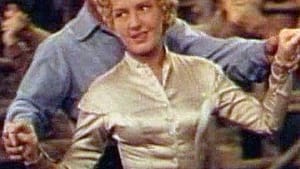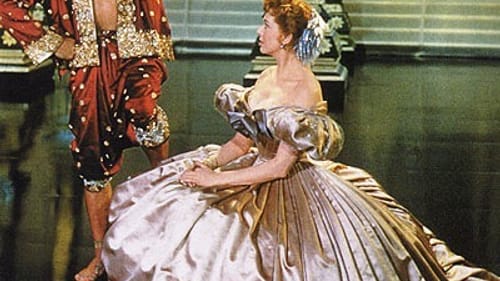Stay in the Loop
BSR publishes on a weekly schedule, with an email newsletter every Wednesday and Thursday morning. There’s no paywall, and subscribing is always free.
What do 'Shane' and 'Norma Rae' have in common?
The joy of unrequited love

If Henry Higgins married Eliza Doolittle, would they live happily ever after? How about Lancelot and Guinevere? Or Doctor Zhivago and Lara?
No, I don’t think so either.
Romantic fiction usually ends when the lovers finally fall into each other’s arms, without bothering to imagine the routine drudgery of the years to come. Even more intriguing, to my mind, is the fiction of unrequited love. How much more romantic to fantasize about, say, your high-school crush than to spend your life actually coping with his or her dirty laundry, eating habits, musical tastes, TV preferences, relatives, and political views? Some of my favorite novels and films tantalize you with a relationship that, for all the genuine chemistry it generates, never actually comes to fruition.
A few examples:
Novels
- Middlemarch (George Eliot, 1872). Earnest, intelligent Dorothea Brooke and the idealistic young doctor Lydgate clearly belong together, but both are locked in disastrous marriages. They relate instead as mutually supportive friends.
- Wuthering Heights (Emily Bronte, 1847). The mutual obsession of Heathcliff and Cathy persists even after Cathy’s marriage and death. Would they have been happy as husband and wife? Maybe — but would you have read such a book?
- The Age of Innocence (Edith Wharton, 1920). At the highest level of New York society, Newland Archer is engaged to the beautiful and proper May Welland but finds himself attracted to Ellen Olenska, who has scandalously fled an abusive marriage to a Polish count, thereby rendering herself socially untouchable. Despite their mutual affection, Archer chooses duty over love, leaving him "content instead to live with his memories of the past.” (See Roman Holiday, below.)
- The Valley of Decision (Marcia Davenport, 1942). Mary Rafferty, an Irish girl of 16, finds work in 1873 as a maid in the Pittsburgh mansion of the Scott family, an industrial dynasty. She soon proves herself smarter and more virtuous than her gentle employers. Over the next 69 years, through loyalty, devotion, and sheer willpower, Mary becomes the driving force that holds the Scott family as well as their company together. When Mary and the family scion, Paul Scott, fall in love, she nobly rejects his marriage proposal on the grounds that such an ill-suited match would wreck the family business.

Theater
- The King and I (Richard Rodgers and Oscar Hammerstein II, 1951). Anna, a widowed English schoolteacher, is hired by the autocratic King of Siam to tutor his many children. The resulting culture clash may be predictable, but what’s fascinating about this relationship is the mutual attraction that develops between these two strong-willed personalities — an attraction neither Anna nor the King ever consciously acknowledges. It is left to Lady Thiang, the King’s submissive but perceptive chief wife, to observe that “she needs him as much as he needs her, although she doesn’t know it.”
Movies
- How Green Was My Valley (John Ford directed, 1941). Gruffydd (Walter Pigeon) is the idealistic parson in a Welsh coal mining town; he and Agharad (Maureen O’Hara), the beautiful and high-spirited coal miner’s daughter, are clearly meant for each other. But Gruffydd declines to subject Agharad to the impoverished life of a minister’s wife, leaving Agharad to submit to a materially comfortable but loveless marriage to the mine owner’s son.
- Shane (George Stevens directed, 1953). Here the unrequited love story evolves unseen (to us and the lovers) amid a range war between cattlemen and farmers. Shane (Alan Ladd), a gallant former gunfighter in post-Civil-War Wyoming, finds honest work on the homestead of the hardworking Joe Starrett (Van Heflin) and his loyal wife Marion (Jean Arthur). Within this honorable triangle an unspoken chemistry develops between Shane and Marion, unmentioned until the denouement, when Starrett resolves to confront a murderous gunman over Marion’s anguished objections. "I've been thinkin' a lot and I know I'm kinda slow sometimes, Marion," Starrett tells her, "but I see things. And I know that if anything happened to me that you'd be took care of, took care of better than I could do it myself. I never thought I'd live to hear myself say that but I guess now's a pretty good time to lay things bare." Happily, it never comes to that; Shane intervenes, leaving Marion with a living husband and the memory of the ultimate sacrifice of a loving friend.
- Roman Holiday (William Wyler directed, 1953). A young visiting princess (Audrey Hepburn) escapes from her entourage to spend a never-to-be-forgotten day touring Rome with an American newspaperman (Gregory Peck). At day’s end they part, bequeathing each other enough fond memories to last a lifetime — preferable, surely, to the likely outcome if they’d tried to make a life together.
- Norma Rae (Martin Ritt directed, 1979). Norma Rae Webster (Sally Field), a divorced single mother, seems stuck in a minimum-wage job in a North Carolina cotton mill when two men enter her life. Sonny, a provincial former coworker (Beau Bridges), courts and marries her; Reuben Warshawsky, a sophisticated union organizer from New York, awakens her. In effect, Sonny infiltrates Norma’s body while Reuben penetrates her mind. As in Shane (above), Norma Rae’s final farewell handshake with Reuben says it all: some relationships transcend sex.
Sign up for our newsletter
All of the week's new articles, all in one place. Sign up for the free weekly BSR newsletters, and don't miss a conversation.
 Dan Rottenberg
Dan Rottenberg